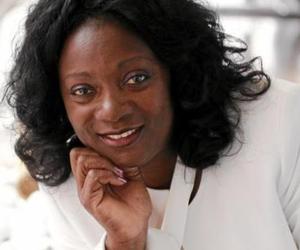Ladies in White leader wants U.S. to maintain hard-line on Cuba
- Submitted by: lena campos
- Society
- 04 / 30 / 2013

The leader of Cuba’s dissident Ladies in White, Berta Soler, called for maintaining the U.S. trade embargo and limiting travel to the island until the Raúl Castro government respects human rights.
Castro’s economic and migration reforms are merely “cosmetic,” Soler added during a lengthy visit with reporters and editors from The Miami Herald and El Nuevo Herald.
Soler acknowledged that her hard-line views differ from those of other government critics such as blogger Yoani Sánchez, who opposes the embargo and favors more U.S. travel.
But all dissidents agree that the Castro system must end, she added.
Wearing the traditional white clothes that the Ladies in White use during their protests, the 49-year-old microbiology lab technician called for “harsh treatment” of the Castro regime, including maintaining the half-century old U.S. embargo “to take away the Cuban government’s oxygen.”
While Cuban-American visitors deliver some cash and other benefits to their relatives on the island, Soler argued that other U.S. visitors spend most of their money on state-owned hotels and tourist facilities. The embargo prohibits tourist travel to Cuba, but U.S. citizens are allowed to make people-to-people trips, which are supposed to increase the opportunity to interact with everyday Cubans.
“That money arrives clean at the Cuban government,” she said, adding that for island officials international tourism is the industry “that lays the golden eggs.”
Soler also dismissed Castro’s economic reforms as “nothing more than cosmetic.” She called the changes in the immigration system — credited with allowing her and half a dozen other dissidents to travel abroad for the first time in years — “the same dog with a different collar.”
Although the government removed the requirement for the much hated “exit permit” in January, she added, authorities can still deny passport applications or put “no travel” flags on the official records of any Cuban.
Soler also argued that dissidents in Cuba require more financial support from abroad because the government, which is almost the island’s only employer, denies them jobs and other income yet calls them “mercenaries” paid by the U.S. government.
“Nobody pays us” to oppose the government, she said. Soler said the Ladies in White distribute assistance from abroad to women with relatives in prison or who need help with transportation, food, clothes and medical care.
Half a dozen Ladies in White appeared in a video last week complaining that they were not being paid enough money. Soler dismissed the video as government propaganda and noted that it came out on the same day she was in Belgium to pick up the European Parliament’s Sakharov Prize for Freedom of Thought.
On her group’s relations with the Catholic Church in Cuba, Soler said the women receive support from priests and nuns. She also noted that Cardinal Jaime Ortega played a role in 2010 in ending the government’s increasingly harsh repression of the women’s street protests in Havana and arranging for the release of political prisoners.
The government eventually freed about 115 prisoners, including the last 52 dissidents still jailed from the group of 75 rounded up in a 2003 crackdown known as Cuba’s “Black Spring.” The remainder included some common criminals, she noted.
All but a dozen of the freed inmates went directly from prison to exile in Spain. Soler’s husband, Angel Moya, chose to stay in Cuba following his release and remains a leading opposition activist.
But Ortega has been “silent” since a four-hour meeting with the Ladies in White last summer, Soler added. A month earlier, the women had what they called a “tough” meeting with Msgr. Ramón Suárez Polcari, chancellor of the Havana archdiocese.
Suárez declared that the women were no longer a humanitarian group because their jailed male relatives had been freed, and that their request for an audience with then-Pope Benedict XVI in the Vatican was unnecessary because the Cuban government would never allow them to leave Cuba in any case, according to media reports.
Soler also blamed the Cuban government for the Oct. 14 2011 death of Laura Pollán, who founded the Ladies in White in 2003 to bring together the female relatives of dissidents arrested in the Black Spring crackdown.
Pollán, who suffered from diabetes but did not require insulin, was feeling ill for several days and went into a hospital for treatment. “She was doped up in order to kill her,” Soler declared. The official cause of death was listed as a cardio-respiratory failure.
Source: Miami Herald.com
Comments